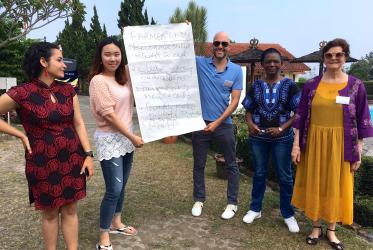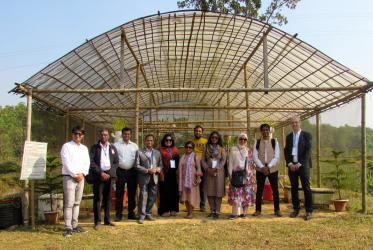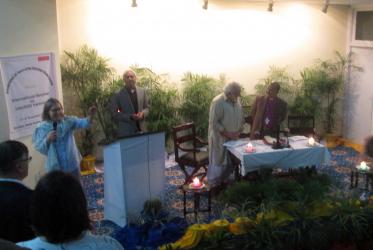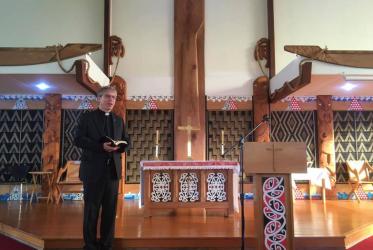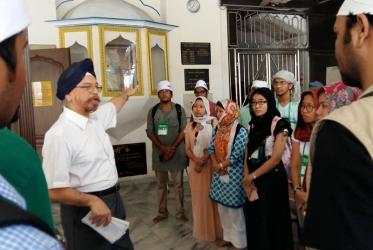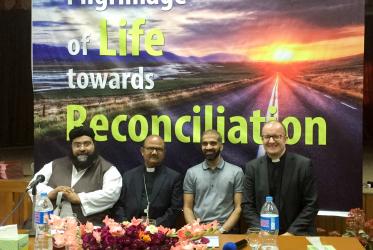Displaying 1 - 20 of 28
17 August 2023
School on economics proves “eye-opening” across globe
02 September 2019
Peace is common denominator of all major religions
05 March 2019
Workshop in Bangladesh links climate, economic justice
07 February 2019
Interfaith Reflections on Just Transitions: Linking Climate and Economic Justice
30 January - 01 February 2019
Dhaka, Bangladesh
Unifying faiths in peace and harmony through dialogue
10 April 2018
WCC Executive Committee issues statement on bishop from Philippines
18 November 2017
In Pakistan, Christian Study Centre celebrates 50 years
10 November 2017
WCC general secretary visits Aotearoa New Zealand
10 October 2016
Religion: Way of war or path to peace?
30 June 2016
Church of Pakistan hosts Muslims, Christians
23 March 2016
WCC Executive Committee speaks out on migrant crises
12 June 2015


